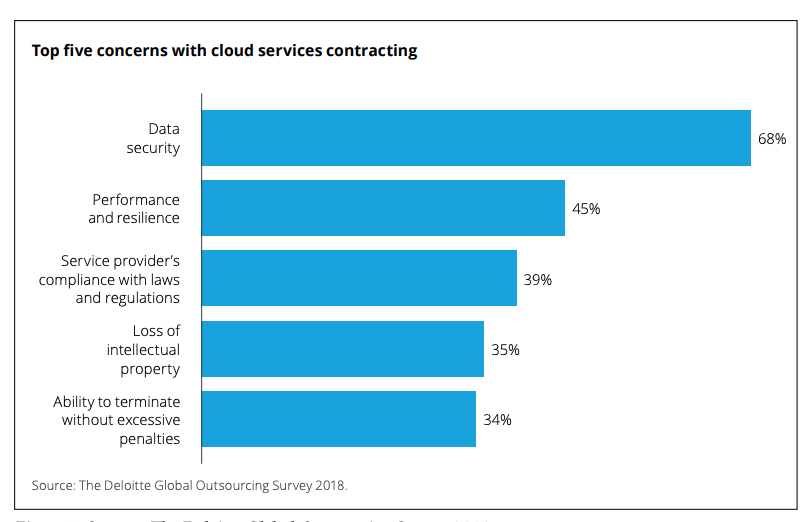Suppose we wind the clock back a few years; imagine a time when you needed a service or product. You pull out a large phone-book-directory and surf the pages for that perfect lead. Finding the right people for any job was a painstaking process.
Today the internet has blurred the lines of international borders. Markets have turned into global markets; research indicates that over 78% of companies who dipped their feet into outsourcing are feeling positive about this change.
But like most revelations, even this one is not a bullet-proof method. But there are ways to make them work to your advantage.

The partnership between the two firms (offshore agency and client-side) is formulated based on a contract. This is an on-paper agreement that covers the various aspects of the collaboration. Fewer concerns arise when this agreement is air-tight.
Need For Offshore Agency
But you might wonder why you should settle for an offshore agency when the legal and technical ramifications are much easier within the country’s borders. We can debunk these myths with a few simple factors:
1. Better ROI
For starters, the cost of working with an offshore agency is, any-day, cheaper than an in-house service. Be it a gig-worker or a company, the extensive labor pool, the exchange rate, and an established infrastructure can significantly reduce costs.
To take an example, if you were to outsource web-development to an Indian firm, they have the manpower, technology, and experience to manage these at a fraction of the cost. Creating this team in-house would lead to costs of hiring, training, salaries, and much more.
2. Fewer in-house Burdens
One of the main considerations for offshore agencies is to reduce the strain on the in-house team. This means, by moving small tasks and departments in the hands of an offshore division, the company shifts focus to more significant actions.
These activities cover product and service development, innovating new products, enhancing customer experience, or simply keeping a check on the purpose of the business.
3. Round-the-clock Functioning
An advantage that many fail to address is the time difference. To take an example, if a company was to outsource a service to Ukraine from the USA. The two countries have a six-hour overlap in working-time zones.
For six hours, they can remain in touch and ensure work stays on track at a fraction of the cost. Also, once the offices in the USA shut shop for the day, their team abroad works a few more hours to provide deliverables at the start of the next working day.
Essential Aspects to Cover on-Paper While Hiring An Offshore Agency
While we do see this is a foolproof way to serve better results there are a few key factors to consider when drafting the formal agreement. Here are a few must-haves:
1. An NDA (non-disclosure agreement)
The Non-disclosure agreement is a contract signed between the two firms that limit the exchange of information within the two companies. In laypersons’ terms it’s like getting a doctor-patient confidentiality agreement between the offshore company and the client-side.
This helps to protect the company’s secrets, intellectual property, and other sensitive data exchanged in the process. It also adds liability to the offshore agency in case there is any leak or discrepancies in the information.
The NDA rules for each country vary, and one might have to consult a local lawyer to ensure they are in order.
2. Legal Provision Within A Contract
To ensure there is a flawless working relationship, an introductory contract or a vendor contract is drafted between the two sides. This is done to establish all the tasks in hand, the working requirements of each side, and the responsibilities of the offshore agency.
They also mention clear expectations that allow the vendor to review them before they sign-on to work. The contract should also provide detail for terminations of the deal, payments cycles, and much more.
Think of this as the most basic documentation needed to kickstart the process. A company might seek the assistance of a local attorney.
3. Cultural Conflicts
A very important aspect to consider when outsourcing to another nation is the conflict of borders. To take a very basic example, in China, many global communication channels and platforms do not function by-law. You must keep in mind these factors when drafting the agreements to avoid hindrance in the workflow.
One must also check if the country understands the brands’ ideologies and legality. The offshore nation should have no internal restrictions or government regulations that could halt or slow down your work.
4. Timelines and Deadlines
Always keep your deadlines narrowed-down and on-paper. This means the timelines of the tasks, the projected deadlines, and other time-bound factors must be mentioned clearly. This can be a set of annual deadlines or broken down into monthly ones.
The agreement should also cover the liabilities of the agency in case they fail to meet the timeline. This creates a formal understanding between the two sides and pushes for a better work-ethic.
5. Billing
One of the most quintessential parts of any legal agreement is the billing information. This does not just include the amount and the bill-cycle. It must be as detailed as possible to avoid confusion and cost-changes.
The billing report should cover the point of billing, the amounts billed, the time of payments, the delay of payment parameters, frequency of payments, request for invoice details, etc.
One should also ensure they take into account all the local and international taxations. This is done by a local auditor to avoid losing payments to unplanned deductions.
6. Data Security
Apart from the NDA, some companies also add additional information about data security. These are firms that depend on data-exchange as their primary jobs. For example, risk-management, tech-support, or big-data analytics. We can see below, based on research by Deloitte, that day security is one foremost risks of outsourcing.
The on-paper agreement should cover those provisions in place for data security and monitoring. They must also mention the technology used for this process and specify what persons/departments have access to the data in question.

7. Data Ownership
The next step is to identify and specify the owners of all intellectual property exchanged between the two sides. The written agreement should highlight who holds property rights and what the liabilities of a breach contain.
These data/content ownership are usually common considerations when large volumes of information are generated. For example, in the case of an advertising agency, companies writing code, studios, or content creation firms.
8. Quality Control
This is one such clause that many companies ignore. Adding the point of QC on paper provides a clear distinction on who can and cannot approve the final outputs. Some firms leave this in the hands of the offshore agencies, while others specify a certain number of iterations and approval.
This section will also cover the liabilities of not meeting demands or assured quality.
9. Clear List Of Deliverables
It is very important to prepare the exact list of deliverables from the agency to the client-side. Every detail should be written down in the form of heading and subheadings.
All the factors fulfilling the client-need must be mentioned on paper to avoid delays or inconsistency into the working-period. It also helps the client-side give extremely specific instructions and expectations for the agency.
10. Duration Of the Partnership
This might sound like an unsaid rule, but the contract period is a very important factor to have on paper. This section should mention the time-period of the collaboration and the notice period (if any).
Apart from the start and end-date on the agreement, one must also consider the terms of renewals and allow provision for early termination or closure. By having all these terms on paper, both sides can ensure a smooth workflow even towards the end of a working-contract.
In Closing,
Some companies might insist on an old-school email-exchange or a verbal contract but ensure the basic details are mentioned on paper and signed by (or approved by) both sides. This practice helps in the case of legal disputes, enforcing protocol, and establishing a working system.
On-paper contracts could be tricky and filled with multiple sections and loopholes. Be sure you seek the advice or representation of an attorney or law firm during this process.


 linkedin.com/in/Sarah Das
linkedin.com/in/Sarah Das 
